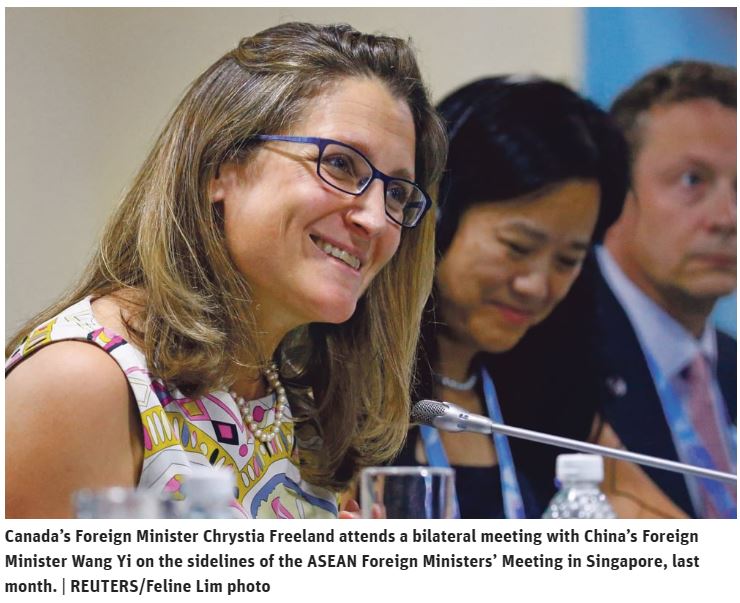ASEAN trade deal lurks in shadows
Two free trade agreements are garnering most of the headlines, but there is another, lesser known potential agreement that has piqued the interest of some Canadian farm groups.
Canada is in the midst of contentious negotiations on a revised North American Free Trade Agreement (NAFTA) and has yet to ratify the Comprehensive and Progressive agreement for Trans-Pacific Partnership (CPTPP).
There has been plenty of ink spilled on both of those pacts. But precious little has been said about a potential new agreement between Canada and the Association of Southeast Asian Nations (ASEAN).
ASEAN is a regional bloc comprising Brunei Darussalam, Cambodia, Indonesia, Lao PDR, Malaysia, Myanmar, Philippines, Singapore, Thailand and Vietnam.
Canada and the ASEAN bloc agreed to launch exploratory discussions on a free trade agreement on Sept. 8, 2017.
One year later, the Canadian government is launching public consultations on a possible Canada-ASEAN agreement.
Interested parties have until Oct. 16 to provide written submissions. The government is looking for ideas, experiences, priorities and how to best improve market access with countries in the ASEAN bloc.
Cam Dahl, president of Cereals Canada, didn’t need that long to provide his thoughts.
“We are strongly supportive of that (deal),” he said.
The ASEAN bloc includes Indonesia, which was Canada’s top wheat customer in 2017-18, with 1.7 million tonnes of sales to that destination.
Indonesia recently completed a free trade agreement with Australia, which is one of Canada’s top competitors in that market.
Australia ships about 4.2 million tonnes of wheat to Indonesia annually. It is almost exclusively milling quality wheat.
Indonesia does not apply tariffs to milling wheat, so there is no big immediate advantage on that front, although Dahl noted that could change in a heartbeat.
“As we’ve seen, this is a volatile time in trade markets. Just because potential tariffs aren’t applied today in a country doesn’t mean they’re not going to be applied tomorrow,” he said.
That is one reason why he would like to see Canada sign a deal with the ASEAN bloc.
Claire Citeau, executive director of the Canadian Agri-Food Trade Alliance (CAFTA), hasn’t had time to poll her members about a potential agreement with the ASEAN bloc but in general she felt it is a good development.
“In principal, any access to new markets, in particular in the Asia Pacific region, can only be a good thing,” she said.
“We need to be more engaged in that part of the world.”
But she doesn’t want it to take any focus away from the federal government ratifying the CPTPP.
CAFTA sent a letter last week to all the leaders of Canada’s political parties urging them to do whatever is necessary to ratify the agreement, which comes into force 60 days after the first six countries ratify it.
“Other CPTPP countries are moving more swiftly to take the necessary steps to bring the agreement into force,” CAFTA president Brian Innes said in the letter.
Singapore, Mexico and Japan have ratified the pact and Chile, Australia, New Zealand and Peru are not far behind.
CAFTA estimates the CPTPP agreement would increase Canadian agri-food exports by nearly $2 billion annually.
“The first-mover advantage is real in trade deals and Canada cannot afford to be left behind by our competitors,” said Innes.
Source: https://www.producer.com/2018/09/asean-trade-deal-lurks-in-shadows/


 Thailand
Thailand




